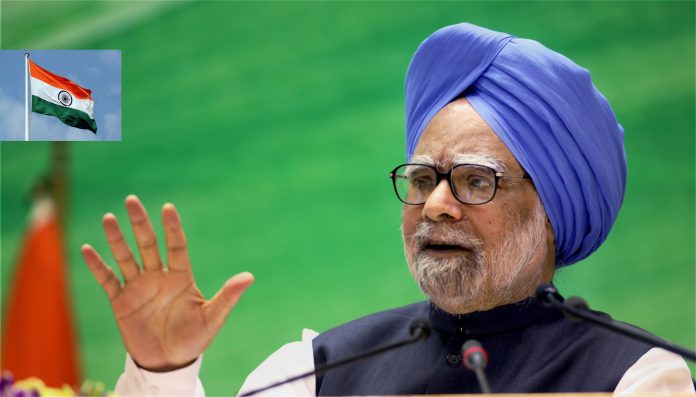- National Flag To Be Flown At Half-Mast During State Mourning: Govt
NEW DELHI: The Union Cabinet on Friday condoled the passing of former prime minister Manmohan Singh, hailing him as an eminent statesman and a distinguished leader who left an imprint on the national life.
During a meeting chaired by Prime Minister Narendra Modi, the Cabinet observed a two-minute silence in honour of the departed soul and adopted a Condolence Resolution in the memory of Singh.
“Dr Manmohan Singh has left his imprint on our national life. In his passing away, the nation has lost an eminent statesman, renowned economist and a distinguished leader,” the resolution read.
The Cabinet extended its heartfelt condolences on behalf of the government and the entire nation to his bereaved family.
The government has declared seven days of State mourning till January 1 during which the national flag will be flown at half-mast across the country.
The national flag will also be flown at half-mast in all the Indian missions/high commissions till January 1.
The former prime minister will be accorded a State funeral and a half-day holiday will be declared in all central government offices and CPSUs.
“The Cabinet expresses profound sorrow over the sad demise of Dr Manmohan Singh, former prime minister of India, on December 26…,” the resolution said.
Born on September 26, 1932, in Gah village of West Punjab in the Punjab province of undivided India, Singh had a brilliant academic career.
He obtained a Master’s degree in economics from Panjab University in 1954, and received his Tripos in economics from the University of Cambridge in 1957 with First Class Honours.
He was awarded his DPhil by the University of Oxford in 1962.
Singh began his career as a senior lecturer in Panjab University, Chandigarh, and became professor of economics in the same university. In 1969, he became professor of international trade in the Delhi School of Economics, Delhi University.
Singh became economic advisor in 1971 in the-then Ministry of Foreign Trade.
He was chief economic advisor in the Union Ministry of Finance (1972 to 1976), secretary in the Department of Economic Affairs (1976 to 1980), member secretary, Planning Commission (1980 to 1982), and Reserve Bank of India governor (1982 to 1985).
Among the many awards and honours conferred upon Singh in his career, the most prominent are India’s second highest civilian honour, the Padma Vibhushan (1987), the Jawaharlal Nehru Birth Centenary Award of Indian’s Science Congress (1995), the Euro Money Award for Finance Minister of the Year (1993), the Adam Smith Prize of the University of Cambridge (1956).
Singh served as finance minister between 1991 to 1996. His role in ushering in a comprehensive policy of economic reforms is well recognised.
Singh became prime minister on May 22, 2004, and served till May 2009. He became prime minister for a second term in May 2009 and served till 2014. (AGENCIES)


